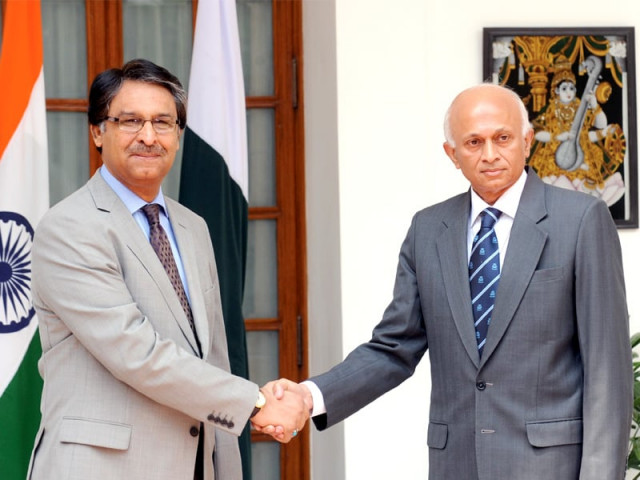Pakistan fends off role in Mumbai attacks, clings to talks process
Indian Premier Manmohan Singh signals readiness to visit Pakistan.

Pakistan vehemently rejected the involvement of any state agency in acts of terrorism in India even as it vowed to keep dialogue on track between the arch rivals at the concluding session of two-day talks on Thursday.
Coinciding with the conclusion of the talks was a significant announcement by Indian Prime Minister Manmohan Singh that he is ready for a visit to Pakistan and hoped that the visit would bring good results.
Addressing Thursday’s news conference, Indian Foreign Secretary Ranjan Mathai stressed that bringing those guilty for the Mumbai carnage to justice “would be the biggest confidence-building measure of all”.
The talks between Mathai and his Pakistani counterpart Jalil Abbas Jilani covered terrorism, CBMs and the core territorial dispute over divided Kashmir. The two top civil servants in their respective ministries said they would meet again in Islamabad to pave the way for foreign minister-level talks in September. However, it was clear that there had been no breakthrough.
The negotiations in New Delhi were clouded by charges arising from India’s recent arrest of Sayed Zabiuddin Ansari alias Abu Jundal, suspected of being a key handler for the Mumbai attackers who killed 166 people in India’s financial capital.
India says Jundal has admitted helping to coordinate the deadly assault from a command post in Karachi, and his testimony has renewed Indian accusations that ‘state elements’ in Pakistan were involved.
At a joint news conference, Jilani insisted the charge was baseless. “I would very strongly reject any insinuation of involvement of any state agency in acts of terrorism in India,” Jilani said. “If we keep accusing each other that will be of no benefit and we will not find any result.”
Separately, Mathai said, “The ongoing interrogation of Abu Jundal has now added urgency to the matter (of bringing the guilty of the Mumbai attacks to book).”
Simultaneously, there was an avalanche of information coming from the interrogation of Abu Jundal. Reports from Indian intelligence agencies suggested that a suspected Inter-Services Intelligence (ISI) operative Major Sameer Ali visited the Karachi control room of the 26/11 attacks when the mayhem engulfed Mumbai and gave several instructions to LeT ‘commander’ Zakiur Rehman Lakhvi.
Another suspected ISI officer Sajid Mir, who was also involved in the Mumbai attacks and conspiracy to carry out other terror acts in India, helped Ajmal Kasab and nine other terrorists involved in the 26/11 strikes, to get training in Baitul Mujahideen, intelligence sources said.
Mir was a key motivator and organiser of the Mumbai attacks which claimed 166 lives, Jundal told interrogators.
When the Mumbai attack was over, Major Sameer told all those present in the control room to disperse and go underground, the source said. While Jundal went back to Baitul Mujahideen, Lakhvi stayed at a safe house with his three wives.
However on a positive note, Mathai said:“The very fact that both sides are determined to sit across the table to resolve all outstanding issues through a dialogue in a peaceful manner is a positive step.”
(With additional input from AFP)
Published in The Express Tribune, July 6th, 2012.



















COMMENTS
Comments are moderated and generally will be posted if they are on-topic and not abusive.
For more information, please see our Comments FAQ